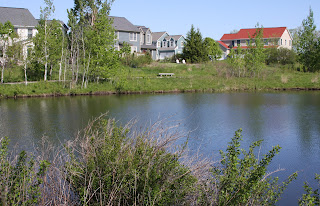A lot of people are probably familiar with the streams, lakes, and rivers near where they live. Many people might even be able to point out where their local water treatment plant is. But what a lot of people might not know is that the water we use often comes from a long, long way away.
Watersheds are areas where water comes together and drains to a common place. In addition to the streams and rivers and creeks that we can see, though, watersheds encompass a huge range of pathways for water, and your nearby water supply might be part of a very large system that spans multiple states.
As a result, even in areas where there aren’t necessarily rivers nearby, what goes into our water directly or indirectly can have a big impact. Development and sprawl, even well outside of cities and away from rivers or lakes, can have a significant effect, and that is the focus of a recent article from The Atlantic Cities:
“Of course, obtaining sustainable development in town isn’t enough, in and of itself, to guarantee high quality, fishable and swimmable rivers and streams. Industry plays a part; utilities and waste water treatment plants play a part; sensitive farming, ranching, and/or timbering play a part, all in different proportions depending upon the particular watershed in question.”
The interconnectedness of watersheds is one of the main motivations behind initiatives like
Lawn to Lake and
Unwanted Medicines – keeping the bad stuff out of our water protects people, plants, and animals across a wide region.


